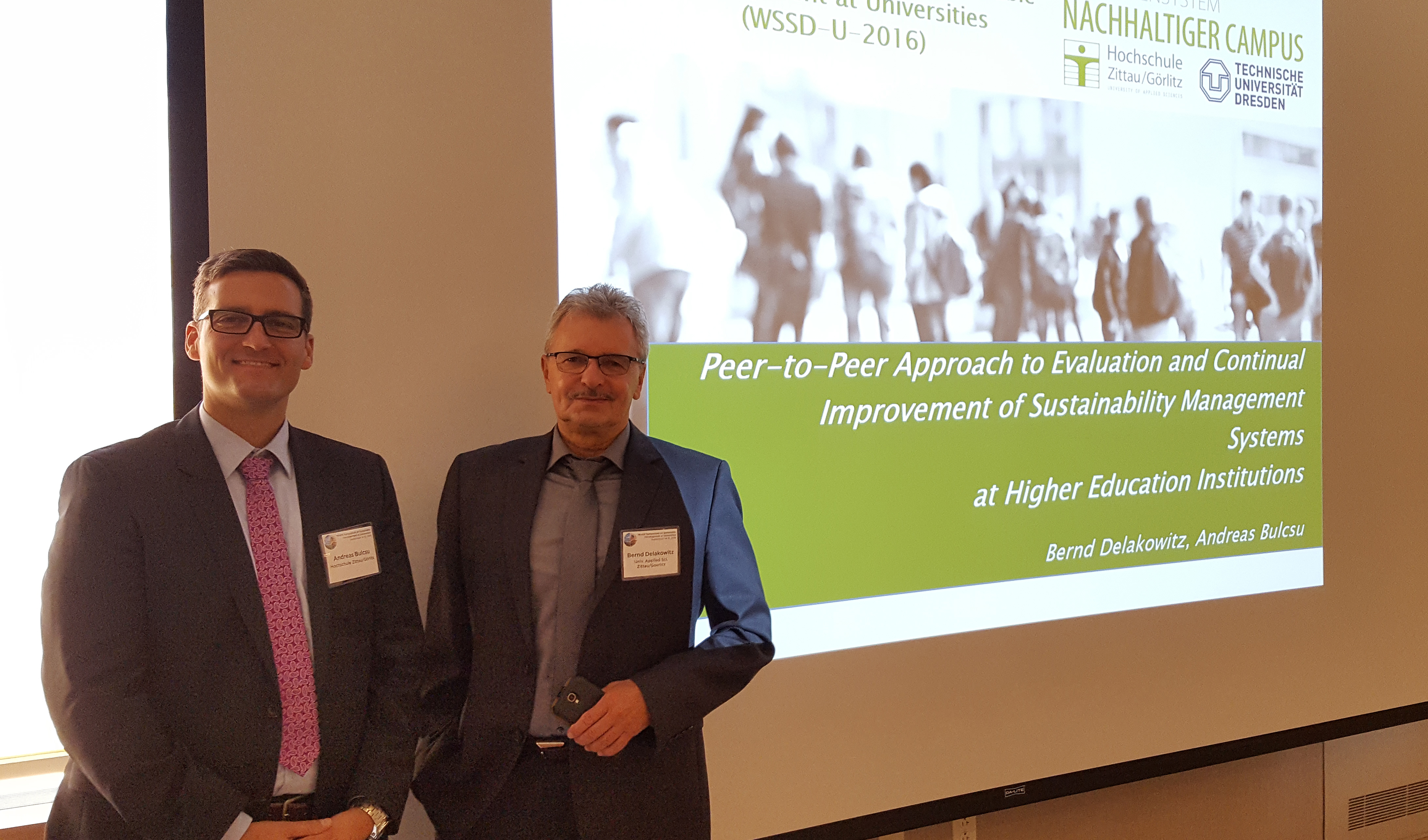The "Sustainable Campus Modular System" project was presented at the Massachusetts Institute of Technology.

The project team "Building Block System Sustainable Campus " of the University of Applied Sciences Zittau/Görlitz (HSZG) followed the "Call of Paper" of the "3rd World Symposium on Sustainable Development at Universities (WSSD-U-2016)" with the submission of a scientific paper on the topic: "A Peer-to-Peer Approach to Evaluation and Continual Improvement of Sustainability Management Systems at Higher Education Institutions".
The symposium takes place every two years and provides a platform for researchers, lecturers and university staff to present new approaches to improving sustainability performance at higher education institutions (HEIs).
To the delight of the entire BNC team, the paper was accepted for presentation by the symposium committee. A delegation consisting of Prof. Dr. Bernd Delakowitz and Mr. Andreas Bulcsu M.A. had the privilege of participating in the conference, which was initiated by Prof. Dr. Dr. hc Walter Leal, from 14.09.-16.09.2016 in Cambridge, USA, with a presentation and the chair of a scientific session.
This was an opportunity to present the BNC team's innovative approach to improving external audits through dialog-based "peer-to-peer" audits at the renowned Massachusetts Institute of Technology (MIT) to an interested audience.
The breathtaking view of the Charles River made the conference room on the 7th floor of the Chang Building a hotspot for 200 guests from 30 countries and invited all participants to discuss together and break new ground on the sustainability path.
The aim of the project, which has been funded by the Saxon Ministry of Science and the Arts since October 2014, is to develop an action-oriented and organization-specific application concept for implementing the tasks and challenges of sustainability management at institutions of higher education (HEIs) and to implement this at HEIs in the Free State of Saxony and, in further steps, throughout Germany.
In addition to the classic aspects of sustainability management (economic, social, ecological), the project will focus in particular on the role model and transfer function of SFIVETs. We see this as a key role in overcoming the challenges of the 21st century, such as demographic change, climate protection and the energy transition, species protection and the preservation of biodiversity, inclusion and equal opportunities, migration and the facilitation of lifelong learning, making SFIVETs a "change agent" for society.
In order to take these developments and requirements into account, the modular system tool is designed as a modular, participatory and organization- and university-specific management system that offers support in the strategic planning and implementation of sustainability management at SFIVET with successful dissemination and establishment.